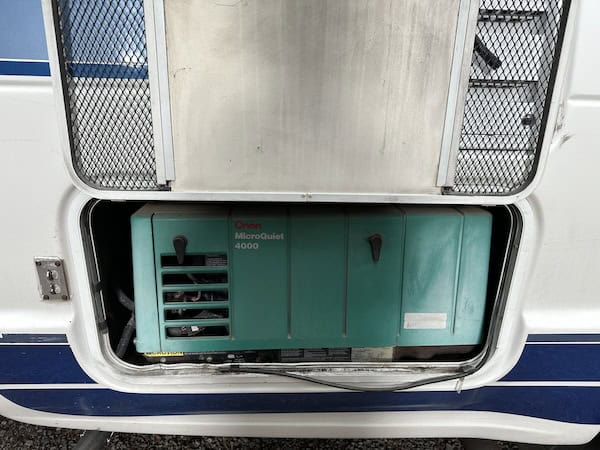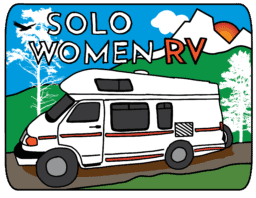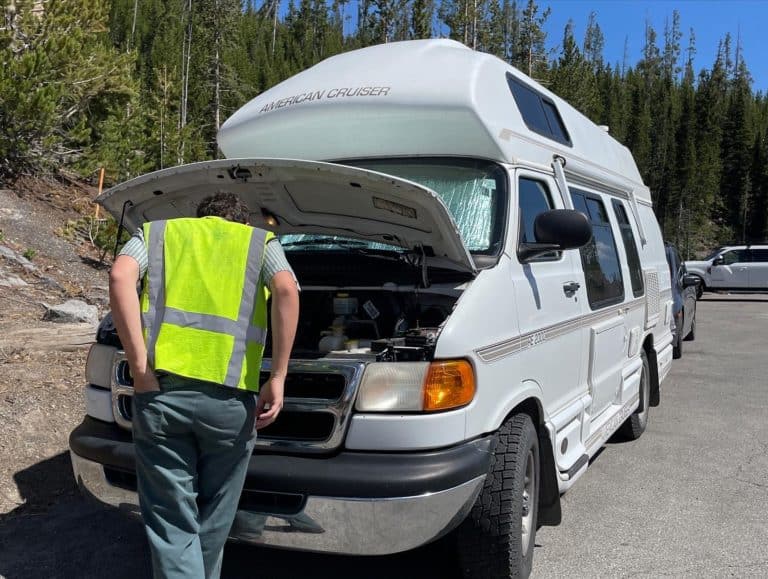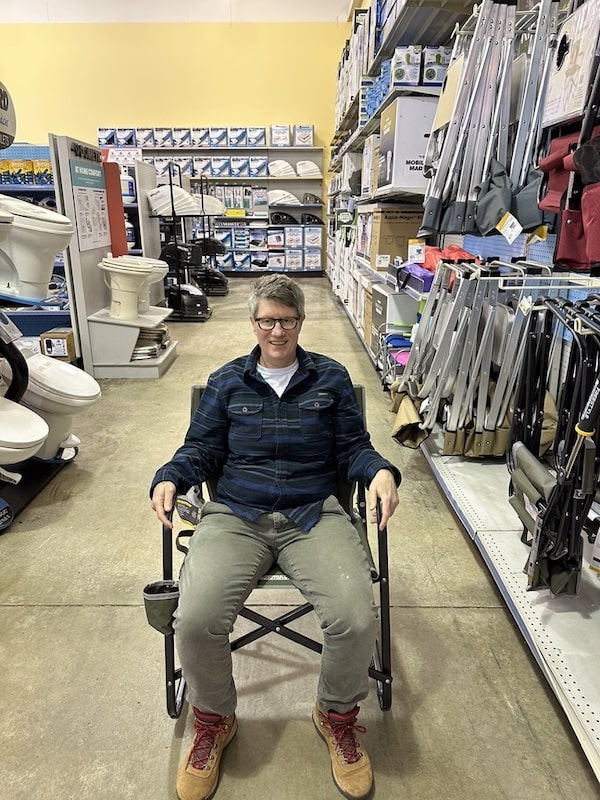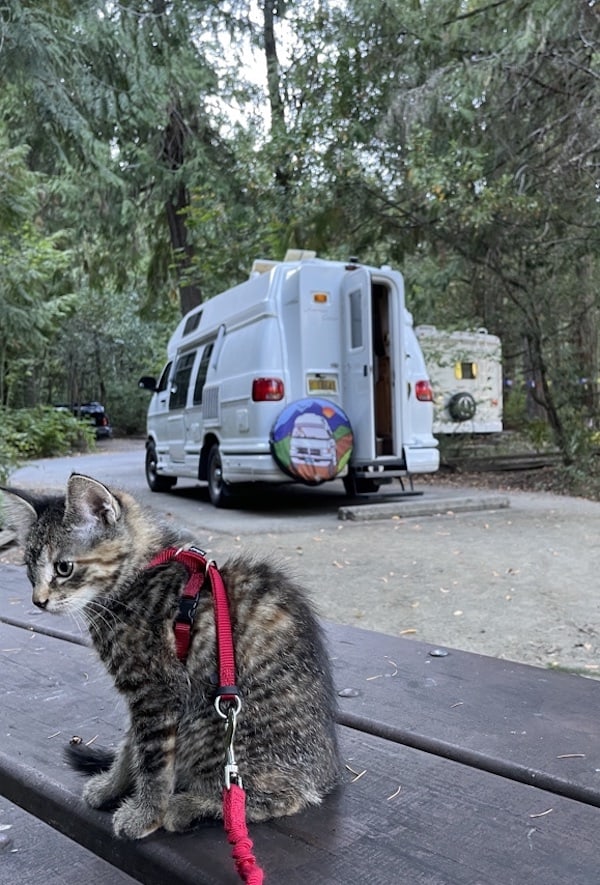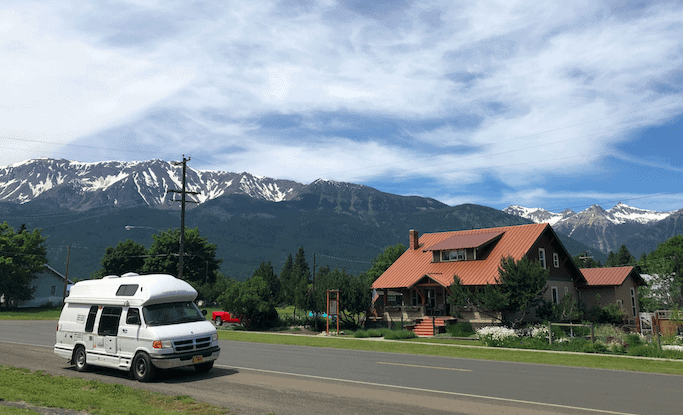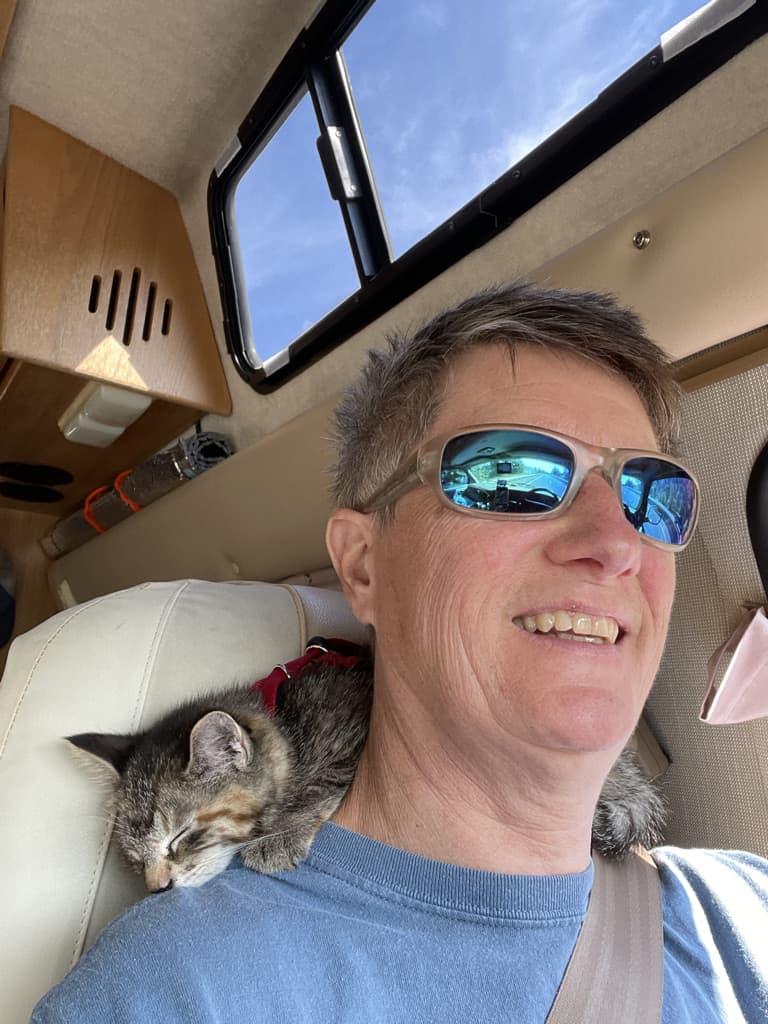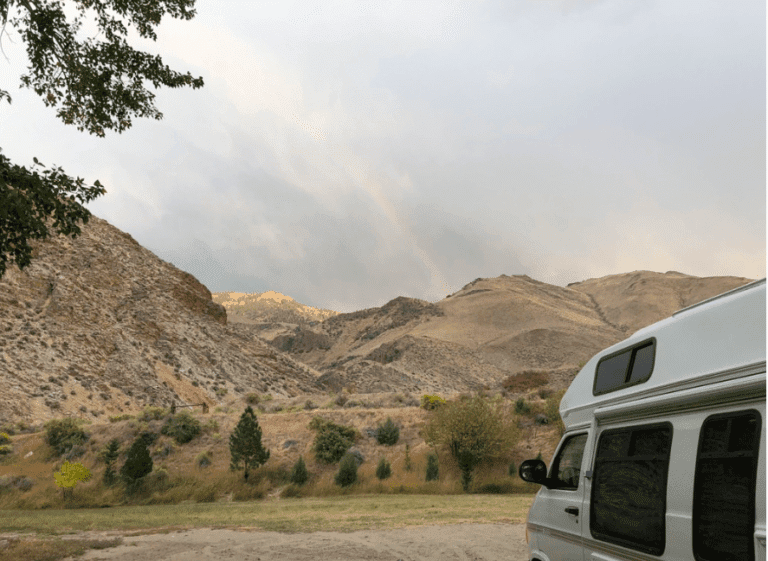Campground Etiquette from a Camp Host
Whether you’re a new camper or a seasoned veteran, you might think you understand the proper campground etiquette. I thought I did too. Until I became a campground host. Then I came to realize certain things I did were just not cool. You learn a lot when you’re on the inside. Here are my top 13 campground etiquette tips and RV generator etiquette for a season of sensational camping.


- Put your damn fire out. I seriously cannot believe the number of people who leave their campsites with the fire still burning, or people who leave their fires unattended while they are inside their RVs or walking about the campground. Last year I coughed in horror as thousands and thousands of acres of my home state burned to the ground. One of my favorite campgrounds was destroyed. Thousands of people are still homeless and the forests will need centuries to recover. The world is only getting hotter and wildfires will spread much more quickly. Proper campground etiquette is to put your fire dead out with buckets of water or shovel sand on it. Make sure the coals are fully extinguished before you leave, even if just for a little while.

2. Don’t walk through other people’s sites. Walking through other people’s sites is poor campground etiquette. Teach your kids this as well. Just yesterday, I saw a family pull in, about 5 kids jumped out of the truck and started running straight across another campsite to get to the bathrooms. Then they proceeded to ride their bikes up and down driveways of other campsites. A ranger once told me that if you rent a campsite, even for just the night, that is considered your property and if people walk through it, they are trespassing. Whether that is true or not, I’m not sure, but I can say it does feel invasive when someone walks across my site. Especially with a child or a dog. I travel with a cat and she gets scared when bikes zoom past, dogs come to close or kids come running up to her. While it may be the quickest way to the bathrooms, please don’t cut across another person’s campsite.
3. Don’t throw your food on the ground. As a campground host, one of our jobs is to clean out sites after campers leave. Among the host community, I can tell you pistachio shells are one of our biggest pet peeves. They seem to never compost. If you eat your nuts and throw the shells on the ground we have to pick them up, one by one, with a litter picker. It’s quite tedious and quite annoying. I know what you’re thinking, they’re shells, they’ll decompose, right? Well, unless it’s going to decompose by 4pm when the next camper arrives, the campground host has to pick it up. One of my worst days as a campground host was the day I had to pick discarded spaghetti from a bush at the back of a campsite. Onion and garlic skins, corn cobs, coffee grounds, tea bags. Just don’t. Put them in the trash where they belong, or bring them back home with you to compost.

4. Don’t Paint Rocks and Leave the glitter at home! I love crafty projects as much as the next person. I love that you plan messy activities for your kids outside. But please, leave the glitter and bead projects at home. Do you know how hard it is to pick up glitter, tiny beads or broken water balloons up from a campsite? Painting rocks seems to be something that a lot of campers enjoy. But did you know it is considered vandalism in some parks and campgrounds? If you want to paint rocks while camping, please bring your own rocks with you and please take them home with you when you leave. You might think you’re leaving a special gift for the next camper, but in reality, the camp host is probably throwing it out. The same is true for sidewalk chalk. In the campground I work at, it is written in the rules that sidewalk chalk is not allowed. It’s very hard to clean sidewalk chalk. People come camping to experience nature, not the masterpiece of Picasso, Jr. One of the best lessons to teach your kids is to leave a campsite cleaner than you found it. Get the whole family involved with packing and clean up!
5. Don’t Stack Rocks. Rock stacking is pretty impressive and seems to be growing in popularity. It looks cool, but it’s not. It’s poor campground and hiking etiquette to stack rocks or make cairns in a natural environment. Doing so can destroy the habitat of fish, aquatic animals and even mosses and lichen. It can even lead to erosion and destruction of the shoreline. Plus, it takes away from the beauty of a natural scene and can even create a safety hazard if they fall over on someone.
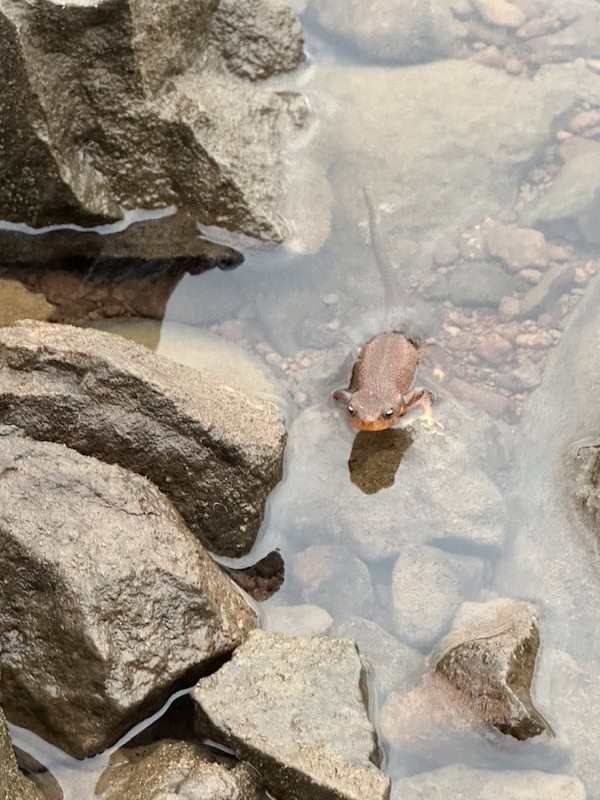
6. Use local Firewood Only. Most campsites sell their own firewood. You might save a few bucks by bringing your own, but you could unintentionally destroy a forest. That’s right. Critters, like mountain pine beetles have been known to devastate whole forests when they were inadvertently introduced by someone importing firewood. There are several parks in my home state of Oregon where this is a problem. Please buy your wood within 100 miles of where you will be camping or make sure that it’s USDA Certified Pest-Free.
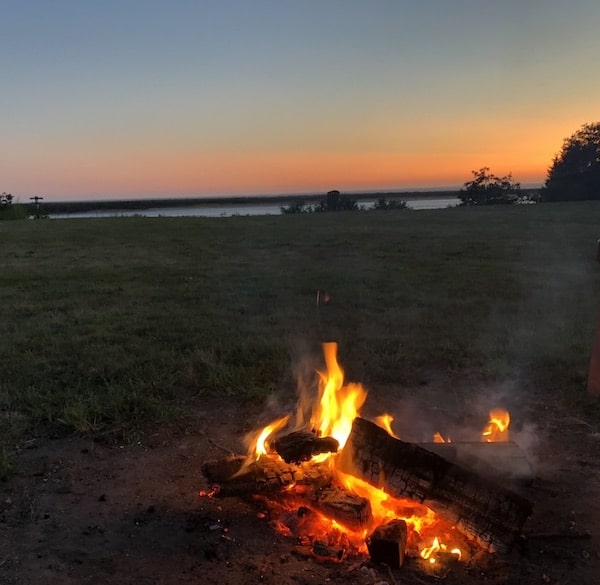
7. The Firepit is not a trash can. It seems to be common practice for people to use their firepits as a trash can. Daily I am cleaning up things like tea bags, coffee grounds, cigarette butts and paper towels. If your idea of fun is to throw your empty beer cans and bottles into the blazing fire, please pick the out in the morning before you leave. The same is true of banana peels, onion skins and that last paper towel you used on your way out of the campground. Please do not leave papers and cardboard in your fire pit, thinking the next camper will use it to start their fire. In reality, the camp host is going to pick it out and throw it in the trash. Remember, most camp hosts are volunteers. Be mindful and show good campground etiquette by picking up your trash.

8. Dogs! Keep your dogs on leash. If the campground has a leash rule, please obey it. Your dog may be friendly, but mine is not. Especially with off leash dogs. A lot of parks have designated off leash areas, so go throw the ball for your friend and wear her out. And if your dog is a digger, be sure to fill the holes back in before you leave. And I don’t have to mention picking up the poop, do I?
For more about camping with pets, listen in to this episode of the Solo Women RV Podcast: Camping and Pet Etiquette.

9. Don’t spit your toothpaste on the ground, or bushes or fire pit. This is something I used to do, until I started working as a campground host and saw all the white spots on the ground, in the bushes and in the dirt. Seeing someone’s spittle all over the ground is probably not what you were hoping for when you planned that epic camping trip. Use the sink in the bathroom or make sure it’s thoroughly diluted and washed away on the ground.
10. Ask for a spot when campground is full. This is the hardest thing I deal with as a campground host. People pull up at 8pm on a Saturday evening, drive right past the “No Vacancy” sign and ask if we have any open sites. I mean, it’s ok to ask, but when we tell you no, we’re full, don’t try to slip me a $20 bill to give you a site that someone else has reserved ( yes this happened). I also probably don’t know what other campgrounds have openings, but I can probably recommend some dispersed camping areas. Please do your research and have a few back up options. You can tell me how you used to just be able to come up here without a reservation, but there’s not a lot I can do about it. I remember those days too. Covid has changed a lot of things and campgrounds are only getting fuller as more and more people are heading out in RVs. Have a few back up options if your first choice isn’t available. Or better yet, make a reservation, especially on summer weekends.
11. Don’t Fill Your Water Tank at Public Spigot. If you’re going to a camping spot with no water hook-ups, please come with a full water tank or gallons of water to use. The spigots that are scattered around the campground are for you to fill personal water jugs, not your RV tank. Many campground water systems do not have the capacity for you to fill your tanks.
12. Turn off Outside Lights When Not in Use. Many RVs have awning lights, porch lights, and other exterior lights. They’re great for helping you find your way back to the RV or camp, but not so great when they’re shining in your neighbor’s eyes or lighting up their tent when they’re trying to sleep. Also, many people come out to the campground to have a dark night sky, so they can witness constellations or even Northern Lights. So, unless you need them on, turn your outside lights off.
13. Check out on time. Finally, if checkout time is 1pm, please be out of your site by 1pm. As camp hosts, we’re waiting for you to leave, so we can get the site cleaned and ready for the next campers. When you dawdle, it puts us behind schedule and we’re working more hours than we volunteered for. If you want to continue to hang out at our beautiful park, and why wouldn’t you, please head to the day use area or overflow parking lot and take it from there.
RV Generator Etiquette
A generator is great to have if you’re camping some place without electric power. A generator can supply power to your RV and all of its systems. RV generators run on gas or diesel fuel and they are loud. Even the most quiet generators, make noise that can annoy your camping neighbors.
Here are some tips for good RV generator etiquette:
- Only run your generator when necessary. Most RV batteries will charge up fully in a few hours of generator use.
- Don’t place your generator close to your neighbor’s campsite. This is something I see all the time. Folks set their generators up to be far away as they can from their own campsite and directly in earshot of their neighbors. That’s just rude.
- Don’t use a frame or construction generator. Construction generators are generally much louder than “quiet” type generators. If you’re going to use a generator, buy a good quality one made for campground use.
- Only run your generator during specified generator hours. Never run it during quiet time.
- Best of all, get a solar generator, such as a Jackery or Bluetti. They’re quiet and use the power of the sun instead of fossil fuels.
